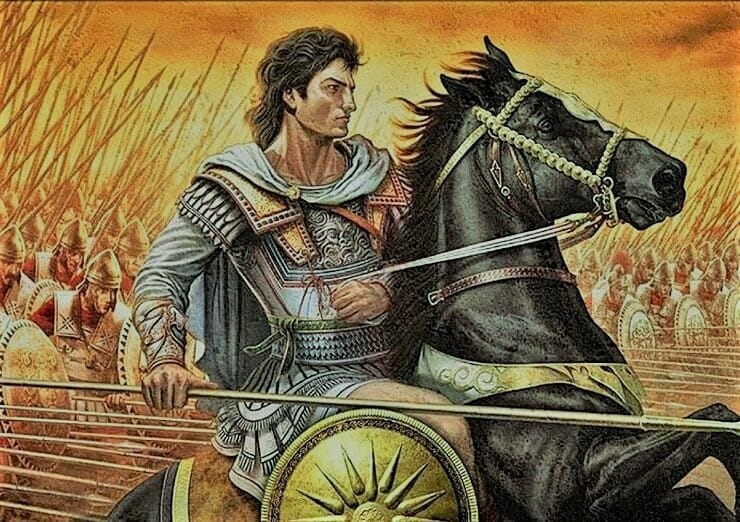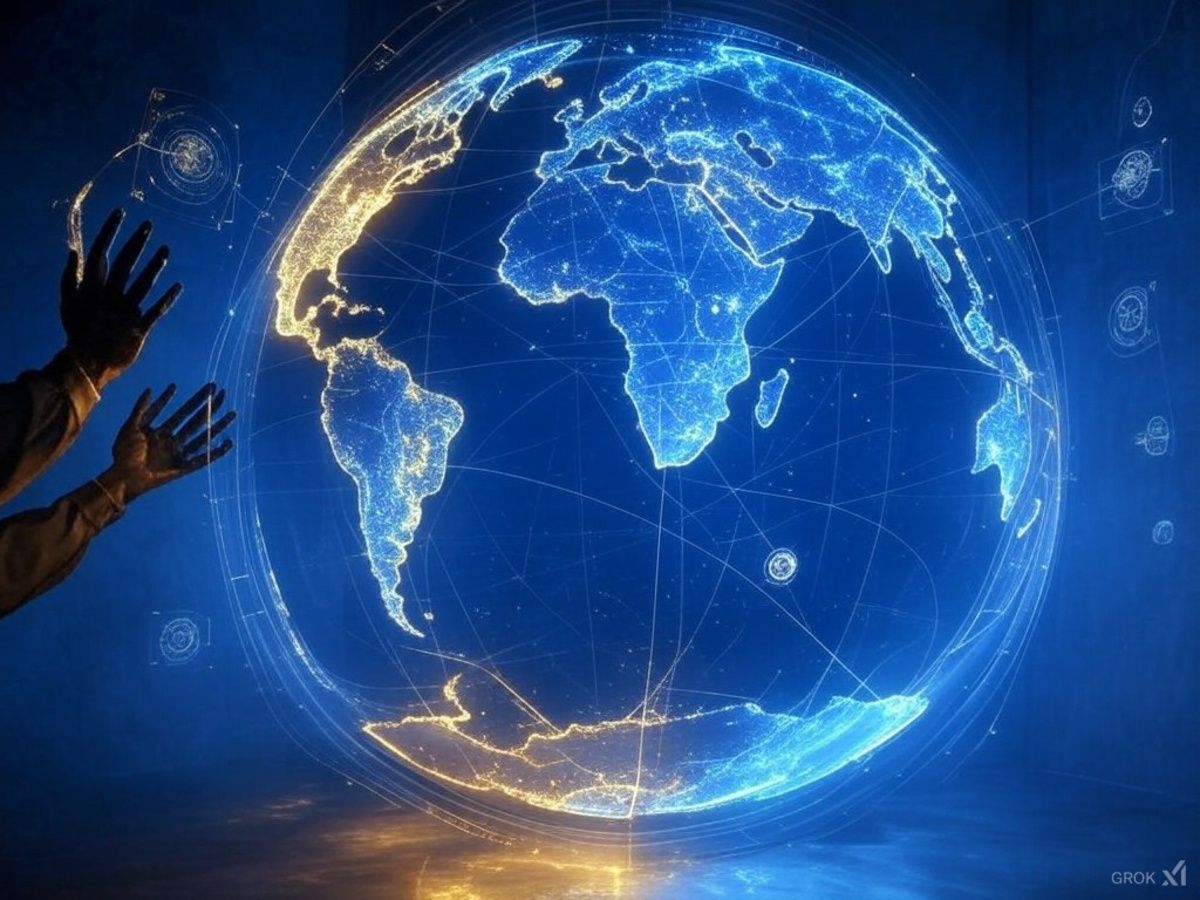In the world now, where interconnectedness defines progress, the idea of singular, legendary figures like Alexander the Great or Genghis Khan shaping history feels increasingly outdated.

Limitless possibilities.
The future of humanity depends on embracing collective thinking to solve monumental challenges like climate change, hunger, and space exploration.
This newsletter explores why the age of individual greatness is over, what collective greatness looks like, and how humanity can work together to build a legacy for future generations.
The Decline of Individual Greatness
Throughout history, societies celebrated individuals who achieved the "impossible."

Alexander the Great.
Figures like Alexander the Great, whose conquests redefined geopolitics, and Genghis Khan, who reshaped the world order, exemplified a kind of greatness tied to singular vision and domination.
However, the conditions that created such figures no longer exist today.
For example, military conquest—the cornerstone of many historical "greats"—is neither ethical nor feasible in our globalized, interconnected societies. Institutions such as the United Nations and advancements in human rights have established norms that prevent the kind of unchecked power central to these legacies.
Similarly, achievements in science and technology are no longer the work of lone inventors or visionaries but of collaborative teams.
For instance, the discovery of the COVID-19 vaccine wasn’t the triumph of a single researcher; it was the product of global scientific cooperation.
"But don’t individuals still matter in leadership?"
Indeed, individuals like Elon Musk or Greta Thunberg seem to play central roles in driving change.
However, even these figures succeed because they amplify collective efforts. Musk’s ventures: SpaceX and Tesla rely on thousands of engineers and global supply chains. Whereas Greta’s influence is rooted in mobilizing thousands of people around the world to demand climate action.
Leadership nowadays is about catalyzing collective power, not standing alone.
The New Face of Greatness
If individual greatness is no longer the defining metric, how should we redefine it now?
The answer lies in collective achievements that transcend borders, ideologies, and generations. Consider these examples of collective greatness in action:
The Moon Landing (1969): Often associated with figures like Neil Armstrong, the Apollo mission was, in reality, the product of over 400,000 scientists, engineers, and technicians. It stands as a symbol of human potential when we unite behind a shared goal.
The Eradication of Smallpox: In 1980, humanity declared smallpox eradicated, thanks to a global vaccination campaign led by the World Health Organization. This achievement saved millions of lives and demonstrated the power of international cooperation.
The Large Hadron Collider: The largest particle accelerator in the world, which is operated by CERN, involves scientists from over 100 countries. The discovery of the Higgs boson in 2012 showcased the collective pursuit of knowledge of humanity.
These stories emphasize that greatness today isn’t about the vision of one person vision but about humanity rising together.
"Doesn’t collective action dilute accountability and slow progress?"
While bureaucracy and differing priorities can create challenges, global cooperation often speeds the advancement by pooling resources and expertise.
For example, the International Space Station—built and maintained by 15 nations—would have been impossible for any country to achieve alone. The benefits of collective action far outweigh the potential inefficiencies.
What Humanity Must Do to Build a Lasting Legacy
Achieving collective greatness requires intentional effort and a shift in mindset.

Collective mindset.
Here’s how humanity can transition from celebrating individual legends to embracing achievements for all of humanity:
Adopt a Collective Mindset: Greatness must shift from 'me' to 'us.' This involves fostering empathy, collaboration, and a shared vision. For instance, the Paris Agreement represents a collective commitment to combating climate change, even if progress remains uneven.
Focus on Monumental Goals: Pursue challenges that inspire generations, such as eradicating hunger, reversing climate change, or establishing a sustainable colony on Mars. These aspirations unite people across cultures and borders.
Invest in Education and Awareness: Cultivate a global perspective from an early age by teaching the value of collective thinking. Programs like Model United Nations already help students understand the importance of international collaboration.
Support Global Cooperation: Break down barriers between nations and ideologies. Whether tackling pandemics or AI regulation, humanity must work as one to address global challenges.
Tell the Right Stories: Shift narratives from individual heroism to shared progress. Films like Hidden Figures, which celebrate the unsung teams behind significant achievements, are a step in the right direction.
The Power of Collective Greatness
In a world often divided, by focusing on collective greatness. We reconsider what it means to be human.
No longer bound to the achievements of a single person, human potential becomes limitless. Imagine a world where future generations celebrate not just individuals but the shared milestones of an entire species.
Think of the moon landing—it wasn’t just an American achievement; it was humanity’s first step toward exploring the cosmos.
Similarly, reversing climate change or curing cancer could serve as defining moments in our collective legacy. These accomplishments will shape how future generations perceive us—not as individuals but as a species united by purpose.
Conclusion
The age of individual greatness is over, but human potential is bigger than ever.
By embracing collaboration, pursuing monumental goals, and telling stories of shared progress, we can create a legacy that inspires the future. Let’s rise to the challenge—not as individuals, but as one global community.
Key Takeaways
Individual greatness, as celebrated in history, is no longer relevant in the current interconnected world.
The future of humanity lies in collective achievements that benefit the entire species.
By cultivating a collaborative mindset, setting achievable yet impactful goals, and thoughtfully reframing our narrative, we can work towards creating a meaningful and enduring legacy.

Think forward.
Are you ready to explore how we can transcend individual limitations and embrace collective greatness? Join us for an in-depth session next week on ‘Levels of Thinking’—a transformative framework designed to empower individuals to become leaders of global change.
Don’t miss out! As we embark on humanity’s next chapter, remember: it’s not about ‘me’—it’s about ‘us.’ Let’s rise together. #CollectiveGreatness

